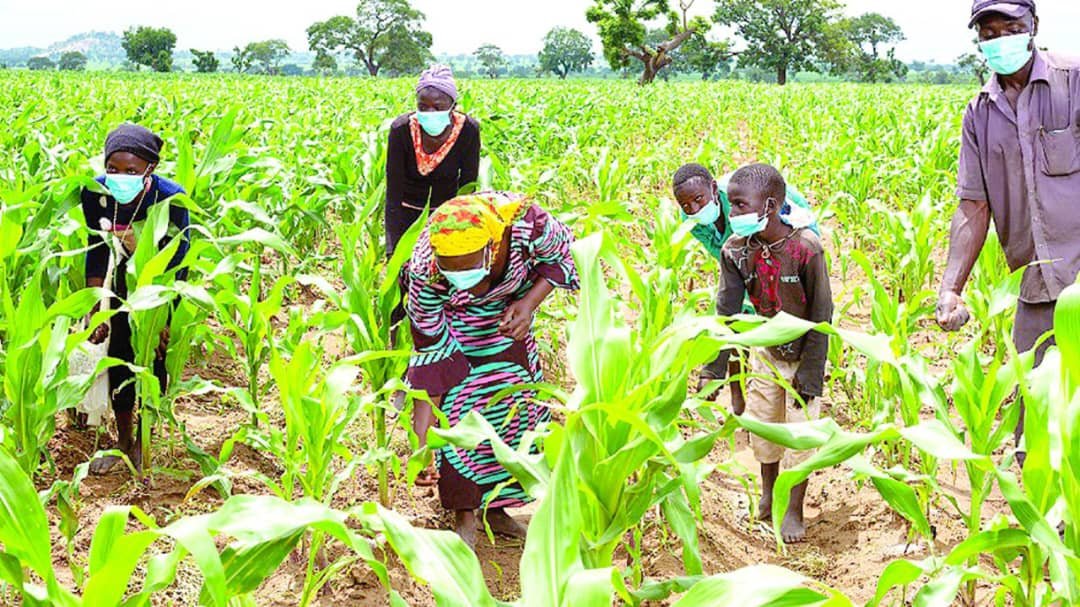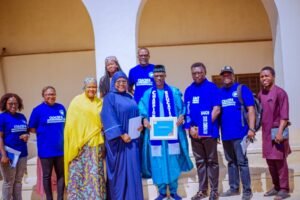
Irrigation Brings New Hope to Adamawa Women Farmers After Floods
By Ahmed Ahmed
In the wake of the devastating floods that destroyed farmlands across Adamawa State, a new sense of hope is taking root among women farmers who are embracing climate-smart irrigation farming to rebuild their livelihoods and secure food for their families.
For years, these women depended solely on rainfall, often losing their crops to unpredictable weather and rising floodwaters. Now, through the introduction of irrigation and climate-smart agriculture (CSA), they are cultivating their fields again this time, on their own terms.
CSA is a modern farming approach designed to increase productivity, build resilience to climate change, and reduce environmental degradation. It has become an indispensable tool in Nigeria’s efforts to ensure food security amid increasingly erratic weather patterns.
Partnership Revives Farmlands in Demsa and Banjiram
In Demsa and Banjiram communities of Demsa Local Government Area, about 70 women farmers and their clusters have benefited from an initiative supported by Women in Mechanised Agriculture (WIMA) and Girmal Seed Company, in collaboration with Propcom+, a UK International Development-funded programme.
Through this partnership, the farmers received solar-powered irrigation pumps, dredgers, maize and rice shelling machines, and climate-resilient seed varieties to enable them cultivate crops during the dry season and recover from flood losses.
Mr. Jahson Wunamir, Project Manager of the Centre for Environmental and Agricultural Support and Empowerment in Livelihoods (CEASEL) in Guyuk, said the project is designed to reduce farmers’ dependence on rainfall and increase their resilience to climate shocks.
“Beyond providing inputs, the project links farmers to out-grower schemes and introduces technologies that conserve resources and boost yields,” Wunamir explained.
“With access to irrigation systems, these women can now farm all year round and restore food production after the devastation caused by floods.”
Farming Made Easier for Rural Women
For Mrs. Regina John, a 40-year-old farmer in Demsa, the new tools have transformed her farming experience.
“Before now, I could only farm during the rainy season.
“With the irrigation pumps, I can now grow maize and vegetables even when the rains stop. It has reduced my stress and increased my harvest.”she said.
In nearby Banjiram, Mrs. Mariya Johnson, aged 50, has also expanded her farm and earnings thanks to mechanisation.
“Last year I cultivated just one hectare, but this season I’ve expanded to three hectares because of the new tools provided,” she said proudly.
“We are no longer just victims of climate change. With these machines and seeds, we are fighting back and securing a better future for our children.”
Experts Call for Wider Adoption of Climate-Smart Practices
Agricultural experts say the adoption of climate-smart agriculture and irrigation farming is key to tackling food insecurity and rebuilding rural economies.
Mr. Danjuma Banjiram, an agronomist, noted that CSA practices provide sustainable solutions to climate-induced challenges.
“The floods were a painful reminder of how vulnerable our farmers are,’
“By integrating climate-smart irrigation into rural communities, we can raise household incomes, create jobs, and position women farmers at the forefront of Nigeria’s agricultural transformation.”he said.
Dr. Halima Ibrahim, a climate and agricultural policy expert, stressed that Nigeria must scale up such initiatives to address the dual challenges of climate change and food shortages.
“Women are the backbone of rural agriculture, and empowering them with modern technologies is critical to achieving a sustainable food system.
“Government and private stakeholders must support policies that improve access to credit, irrigation infrastructure, and markets for smallholder farmers.”She said.
Dr. Ibrahim explained that dry-season farming allows farmers to replant and harvest multiple times a year, reducing the risk of total loss from floods or delayed rainfall. She said the initiative could help transform subsistence farming into stable, income-generating enterprises.
Training and Capacity Building for Sustainable Impact
The intervention also provides training for farmers on climate-smart practices such as soil conservation, efficient water management, and the use of improved seed varieties adapted to local conditions.
Stakeholders believe that empowering rural women with modern agricultural knowledge and technology is the surest way to strengthen food systems and reduce poverty in farming communities.
“When women farmers thrive, entire communities thrive,” said Wunamir. “We are seeing firsthand how these interventions are restoring dignity, hope, and independence among women who once thought they had lost everything.”
A New Dawn for Women Farmers
Today, in the once flood-ravaged fields of Demsa and Banjiram, the rhythmic hum of irrigation pumps and the sight of green maize fields stretching across the horizon tell a story of resilience and renewal.
For these women, climate-smart irrigation farming represents more than just a new agricultural technique — it is a lifeline. It is a chance to reclaim their farms, rebuild their livelihoods, and secure a sustainable future in a world where the climate no longer plays by familiar rules.
Through innovation, partnership, and determination, the women farmers of Adamawa are proving that with the right tools and support, communities can adapt to climate change and flourish again.


